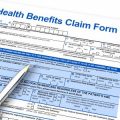The Dodd-Frank Act, created by the government to address the mistakes that led to the 2008 financial crisis, includes and an essential piece that is set to come into effect on January 10, 2014, which will significantly reduce access to mortgage loans for potential homebuyers – a new mortgage challenge. Understanding the changes and how they affect your access to a mortgage can help you formulate a plan if you expect to need a housing loan any time soon.

Banks can only continue the practice of selling loans to investors once completed if they meet a number of criteria that the government decided makes them low risk. These loans are called Qualified Residential Mortgages, or QRMs. The loan itself and the borrower must meet the following criteria to qualify as QRM:
- Borrower’s total debt to income (DTI) ratio of less than 43% including the loan;
- Loan to value less than or equal to 80% on purchases (or 20% down); 75% for refinances with no cash out; and 70% for cash out refinances;
- 30 year maturity or less;
- Fixed-rate only;
- Fees and points of 3% or less;
- No 30 days past due obligations at time of application; no 60 days past due obligations over the prior two years.
Borrowers must also show lenders they:
- Have income and assets sufficient to repay the loan;
- Can prove steady, documented employment history with no gaps longer than one month over the previous two-year period;
- Have a minimum credit score;
- Can pay the debt associated with the mortgage and all other property-related expenses, including taxes.
For any home loans that banks make which do not qualify as QRM, they must retain 5% of the value of the loan. Banks will not have the ability to sell riskier loans completely, nor get the backing of government security, and must retain a portion of the risk of loss itself. Banks don’t want to do that. So if you can’t meet the QRM standards, getting a home loan is going to be exceedingly difficult.
The most important pieces of the legislation if you’re worried about your chances to get a mortgage are the total income to debt ratio and the question of payments past due. Get rid of debt and increase your income if you want to improve your chances of getting a mortgage. Plus, you’ll need to produce documentation that you can present to the lender to prove your new income is steady.
Secondly, catch up on payments. You can deal with all your past-due obligations to clean up your current record. If you have a 60-day delinquent payment, there’s often nothing you can do besides wait it out, presuming you’re committed to getting a mortgage from a bank. However, it is worth contacting the creditor to see if there is a way to have the late payment removed from your credit report (provided you have paid it).
You should also watch out for the 3% rule and the 20% down requirement. If you don’t have the cash to cover the down payment and to make payments, provable based on a combination of savings and income, getting a bank mortgage will be a struggle. The 3% rule makes smaller home purchases more difficult because brokers fees and other fees charged at a nearly flat rate eat up that 3% of the total loan more quickly.
Lastly, plan ahead. Call potential lenders now, even if you won’t start home shopping for six months or a year. You should already have your budget in mind and be able to guess numbers to shop around and find banks that might be willing or close-to-willing to lend to you. If you ask ahead of time you might even get advice based on your financial information about steps you can take to improve your chances, especially if you are self-employed, retired or have piles of student loan debt.
Although experts contend that this will improve the lending market on the whole, it will almost certainly make small mortgage loans for low-income buyers much scarcer. Now that you know what to expect, you can take steps to prepare so you aren’t surprised by the restrictions.
Featured images:
License: Creative Commons
image source
Larque Goodson is a real estate writer at Reply! with over 15 years of experience in journalism and marketing. To learn more about her work, connect with her on Google+.































No Comments
Leave a comment Cancel